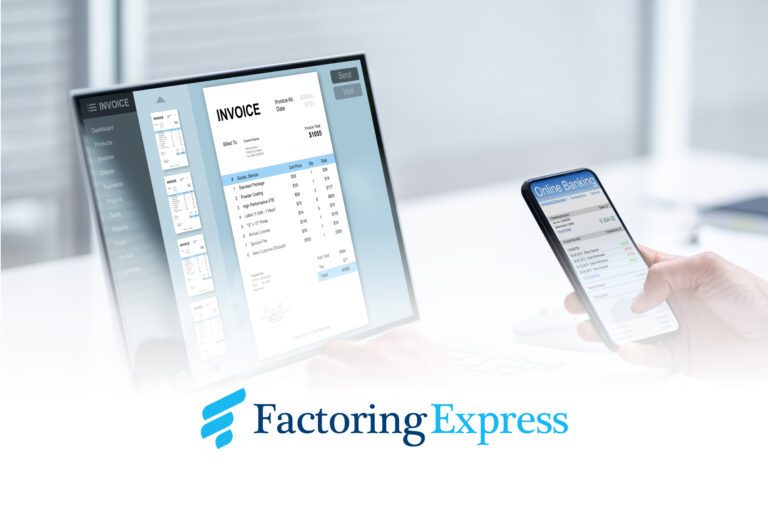Are delayed payments starting to affect the quality of your care? This is a common dilemma among healthcare practices. For this industry, it’s common for claims to take 30 – or even 90 – days to get paid. But with healthcare factoring, practices like yours can receive the funds tied to your claims in just 24 hours – without securing a new loan.
In this post, we’ll talk about the basics you need to know about medical claims factoring and how it can help your practice. Read on and see if this is the right choice for your business!
What is Medical Factoring?
Delayed reimbursements from payors can put practices in a cash crunch, which could impact the quality and accessibility of their care. Worse, they can be forced to pass on some of the financial burdens to their patients. This is where factoring comes in.
Medical factoring, also called healthcare factoring or medical invoice factoring, is a type of financial service. Under this setup, practices like yours can sell eligible medical receivables to a factor or factoring company.
Upon purchase, the factoring company will advance up to 97% of the invoice’s total value. Take note that this is not a loan, but a cash advance, so it won’t be a liability on your books.
Also, the factor will take over the collections process for your claims or invoices. Once they have collected from payors, they will send you the remaining balance with their service fees already deducted.
So what does this mean for your practice? Well, it translates to a steady, predictable, and reliable cash flow. You’ll have the much-needed funds to pay suppliers, practitioners, rent, equipment, and other financial obligations. The best part? You no longer have to stress about chasing payments.
But is it a suitable solution for your practice? That’s what we’re going to find out later on.
Why Healthcare Practices Use Medical Invoice Factoring?
If you’re wondering why practices opt for medical receivable factoring, the following benefits will explain:
- Instant cash flow. As we’ve mentioned earlier, it takes insurance companies and government payors up to 90 days to pay claims. Unfortunately, healthcare facilities can’t wait this long to receive their funds. But with factoring, practices will get their funds immediately to instantly boost their cash flow.
- Access to working capital. For healthcare facilities, expenses won’t wait for payors. So by selling your accounts receivable to a factor, you can convert the invoice into instant cash. This way you’ll have capital to cover operational expenses, salaries, equipment purchases, and so on.
- Reduced administrative burden. Factoring Medicare receivables or private insurance claims saves you from the hassle of collections. This frees up your staff from complex admin tasks, allowing them to focus on other responsibilities in your healthcare facility.
- Flexibility and scalability. The good thing with factoring healthcare receivables is you get to choose which invoices to factor. Also, you can choose to factor only slow-paying payors and keep the rest on your in-house collections team. Whether you need a one-time boost in funding or steady working capital, factoring can be a good solution.
- No debt incurred. Instead of securing another loan, you can opt for factoring to get your much-needed funds from pending invoices. For some practices, this is a more cost-efficient solution than medical receivables financing where they use invoices as collateral for a loan.
Choosing the Right Healthcare Factoring Company
Unlike other industries, healthcare practices have to adhere to strict laws and regulations. So if you want to start factoring medical receivables, you have to look for the right company. Here’s what you should keep in mind:
- HIPAA compliance. The main thing you should check for a factor is their Health Insurance Portability and Accountability Act (HIPAA) compliance. Since you’ll be disclosing financial information related to your patient’s medical transactions, make sure you ask about the measures the factor is taking to ensure compliance.
- Industry experience. Next, you should check how long the factor has been providing their services in the healthcare industry. It’s best to partner with a company with years of experience handling medical receivables. They should have in-depth knowledge of the unique billing and reimbursement process of your practice.
- Excellent reputation. Your partnerships with third-party companies like factors can impact your reputation as a practice. This is why you should look for a company with a good standing in the factoring community and their previous clients in the healthcare industry.
- Transparent fees and rates. Before you sign up with any factoring company, you must assess their fee structure first. Check how much they charge and how it will impact your finances in the long run. For example, with Factoring Express, you’ll get as low as 1.99% in fees for healthcare factoring. Compare this with other providers to see if you can find a better deal.
- Flexibility in funding. You should ask, does the factor have enough capital to fund large invoices? If not, they may not be a sustainable and flexible option. Also, a large factoring capital means that the company can fund your invoices fast even if they are also handling other clients.
Potential Issues When Factoring Medical Receivables
Healthcare factoring is a convenient solution, but it can also bring some potential issues in your practice. Here are some of the aspects you need to know before signing up for this service:
- Patient communication. When you factor an invoice, the factoring company will be the one to reach out to your payors and patients for payments. You must ensure that the factor has a good approach in collections that aligns with your practice’s culture. This is to avoid any issues or misunderstandings.
- Dependency on factoring company. Aside from that, you have to evaluate how dependent you will be on factoring companies for funding. Overall, you should consider it as a contingency instead of your main financing model. This way, your practice will remain financially sound even if the factor fails to provide the funding you need.
- Costs and fees. As we’ve discussed earlier, factoring fees can compound in the long run, which can get costly for some practices. Overall, you should assess whether the cost-to-benefit is a worthy investment or you should explore other financing options.
- Contract limitations. Some payors, especially government agencies, may prohibit the involvement of a third party in collecting claims. You must check this before you sign up for factoring services to avoid any disputes.
- Contractual obligations. Lastly, you have to dedicate time to reviewing the terms and conditions of the factoring company you’re partnering with. Some factors may impose minimums, exclusivity clauses, termination clauses, and other terms.
Alternatives to Medical Factoring
If medical factoring isn’t the right option for your practice right now, there are alternatives you can explore. Here are other ways you can boost your cash flow:
- Medical practice loans. You can explore traditional business loans to fund your practice. This works if you’re planning to buy equipment, secure a new facility, or expand your staffing. However, make sure you review the interest rates and terms to ensure that it won’t be too burdensome for your practice.
- Line of credit. Another option is for you to establish a line of credit with a bank or other financial institution. This way, you’ll have flexible access to funds when you need it most. Aside from that, practices like yours can draw from the line of credit during cash crunches and repay it once you’ve collected the claims.
- Medical revenue-based financing. This is a type of medical receivables financing where practices get funding based on their projected income. With this, you’ll get a lump sum amount in exchange for a percentage of your future revenue until it’s fully paid. But like a traditional loan, always ask for the interest rates and fees when seeking this financing option.
- Medical equipment financing. If your practice needs new equipment or technology upgrades, you can consider equipment financing. Many manufacturers offer this service with a reasonable monthly fee. This way, you’ll own the equipment once it’s fully paid instead of leasing it all the time.
Additional Tips for Optimizing Cash Flow
Aside from exploring medical invoice factoring and other financing options, there are other ways to enhance your finances even more. Here are some of our additional tips:
- Efficient billing processes. You should implement an efficient billing process to avoid errors that could delay payments from insurance companies. Also, make sure that you have a streamlined claims submission process, preferably with a dedicated team.
- Clear payment policies. Before you provide your services, make sure that you explain your payment policies to patients. This includes co-pays, deductibles, and how outstanding balances will be collected. This way, you can have timely payments while avoiding any confusion on the part of patients.
- Prompt claims submission. It’s important that you submit each claim as soon as possible. This way, the payor can process it right away and you’ll have time to address any issues. You should also monitor all submitted claims for denials or rejections.
- Negotiate favorable contracts. You should also communicate with your partner payors to negotiate better payment terms. This way, you can boost your revenue for each filed claim.
Conclusion
Medical factoring offers healthcare providers like you a convenient way to receive funding. Instead of getting a loan, you can receive cash advances on your claims in exchange for a small fee.
If you’re interested to start factoring for your practice, don’t hesitate to reach out to us at Factoring Express. Our expert team can fund your eligible invoices within 24 hours. This way, you can focus on what you do best: excellent patient care.




